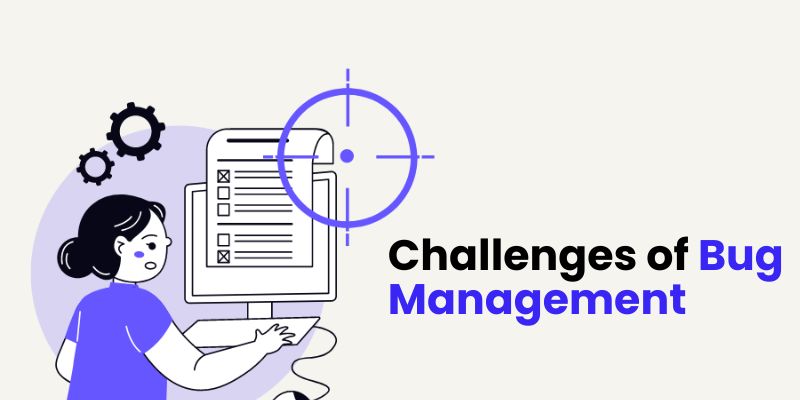
Bug management is a critical aspect of software development and quality assurance processes. It involves identifying, prioritizing, tracking, and resolving software defects or bugs. However, despite its importance, bug management comes with its own set of challenges that can impact the efficiency and effectiveness of the software development lifecycle. In this blog post, we’ll explore some of the common challenges faced in bug management and discuss strategies to overcome them. If you plan to become a software tester, you should learn more about tricks and strategies by taking courses such as the Software Testing Course in Chennai at FITA Academy.
Challenges of Bug Management
1. Inadequate Bug Reporting
One of the primary challenges in bug management is the quality of bug reports. Inadequate or vague bug reports make it difficult for developers to reproduce the issue, leading to delays in resolution. Factors such as incomplete information, lack of steps to reproduce, and ambiguous descriptions contribute to this challenge. Addressing this challenge requires educating stakeholders on the importance of detailed bug reporting and providing guidelines or templates for creating comprehensive bug reports.
2. Poor Bug Prioritization
Another challenge in bug management is prioritizing bugs effectively. Not all bugs have the same impact on the software’s functionality or user experience. However, without a clear prioritization strategy, teams may struggle to focus on resolving critical bugs first. This can lead to delays in addressing high-impact issues and frustration among stakeholders. Implementing a systematic approach to bug prioritization based on factors such as severity, impact on users, and business priorities can help mitigate this challenge.
3. Lack of Communication and Collaboration
Effective communication and collaboration between different stakeholders, including developers, testers, product managers, and customers, are essential for successful bug management. However, siloed communication channels, misaligned priorities, and cultural barriers can hinder collaboration efforts. This can result in misunderstandings, delays in bug resolution, and dissatisfaction among stakeholders. Encouraging open communication, fostering a collaborative culture, and leveraging tools such as issue trackers and project management platforms can address this challenge. Passionate to know more about software testing strategies? Then check out the Software Testing Online Course. Enroll now.
4. Overwhelming Bug Backlog
As software projects progress, the bug backlog tends to accumulate, making it challenging to manage and prioritize bugs effectively. A large backlog can overwhelm teams and lead to a sense of disorganization and inefficiency. Without proper management strategies, bugs may linger in the backlog for extended periods, increasing technical debt and impacting the overall quality of the software. Implementing regular backlog grooming sessions, setting realistic goals for bug resolution, and establishing clear criteria for closing or deferring bugs can help manage the bug backlog more effectively.
5. Tracking and Monitoring Progress
Tracking the status and progress of bug resolution efforts is essential for ensuring accountability and transparency within the team. However, without robust tracking mechanisms and clear visibility into bug metrics, teams may struggle to monitor progress effectively. This can result in missed deadlines, unaddressed bugs, and decreased trust among stakeholders. Leveraging bug tracking tools with customizable dashboards, implementing regular status updates, and conducting periodic reviews of bug metrics can help address this challenge.
Bug management is an integral part of the software development lifecycle, but it comes with its own set of challenges. From inadequate bug reporting to poor prioritization and communication issues, addressing these challenges requires a combination of process improvements, collaboration efforts, and the use of appropriate tools and techniques. By recognizing and actively mitigating these challenges, teams can streamline their bug management processes, improve the overall quality of their software, and deliver better experiences for end users. Looking to boost your Software knowledge? Join our unique and engaging Software Training Institute In Chennai. Gain valuable insights and skills conveniently and flexibly. Enroll now to take your profession to the next level!